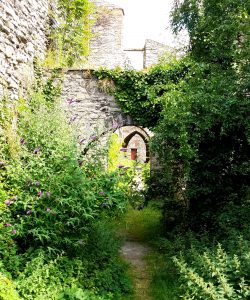In 2018, the BYU Humanities Center held a symposium titled “On Being Vulnerable: ‘Crisis’ and Transformation.” BYU faculty and distinguished invited speakers reflected together on how retrenchment has become a dominant reflex of the humanities during vulnerable times, and how such a response only exacerbates the state of “crisis” from which the impulse toward retrenchment, toward defensiveness, is designed to protect us. In response, we sought to reflect on how vulnerability opens us to the prospect of change. We took a cue from Hannah Arendt, who argues in The Human Condition that only actions of the most vulnerable kind—self-disclosing, interpersonal, unanticipated, and hence lacking defense of precedent or certainty of outcome—achieve lasting effects. Arendt associates such actions with speech and writing, drama, music—in short, with the arts and humanities—and contrasts them with displays of strength that fortify institutions and bolster economies but ultimately do little to cultivate the human spirit. In effect, she provides a model for the humanities after an era of “crisis,” when humanities disciplines are increasingly portrayed as indefensible and when their greatest chance for survival, ironically, may depend on how their proponents embrace that very trait.
 Our symposium for 2019 represents a continuation and evolution of this theme. We are particularly interested this year in addressing the vulnerability associated with our ecological condition – but less the vulnerability of the earth per se than of how the earth’s precarious state reveals our own and prompts us to new ways of thinking and being. The Anthropocene, of course, designates the earth in a state of transformation, cataclysmically so, in response to human activity; but is it possible to imagine ourselves transformed for the better as a function of the ecological peril our planet faces? How might our consciousness of gathering catastrophe incite changes in us that help us redress the deeper conditions of which the Anthropocene is a symptom? We are especially compelled here by the thought of how our vulnerability – on the one hand, in the face of ecological disaster and, on the other, the transformative thinking this condition requires – inspires us to reconceive our place in the cosmos, alongside each other and, potentially, before God. “Faith after the Anthropocene” refers to ways our current condition of sober novelty, of generative catastrophe, modifies our beliefs and practices, both religious and secular. Who are we “after” (the concept of) the Anthropocene? How might we project and approach the horizon of our existence? What forms of thought and structures of feeling might attend us in this state? How might we determine our values and to what do we orient our hopes?
Our symposium for 2019 represents a continuation and evolution of this theme. We are particularly interested this year in addressing the vulnerability associated with our ecological condition – but less the vulnerability of the earth per se than of how the earth’s precarious state reveals our own and prompts us to new ways of thinking and being. The Anthropocene, of course, designates the earth in a state of transformation, cataclysmically so, in response to human activity; but is it possible to imagine ourselves transformed for the better as a function of the ecological peril our planet faces? How might our consciousness of gathering catastrophe incite changes in us that help us redress the deeper conditions of which the Anthropocene is a symptom? We are especially compelled here by the thought of how our vulnerability – on the one hand, in the face of ecological disaster and, on the other, the transformative thinking this condition requires – inspires us to reconceive our place in the cosmos, alongside each other and, potentially, before God. “Faith after the Anthropocene” refers to ways our current condition of sober novelty, of generative catastrophe, modifies our beliefs and practices, both religious and secular. Who are we “after” (the concept of) the Anthropocene? How might we project and approach the horizon of our existence? What forms of thought and structures of feeling might attend us in this state? How might we determine our values and to what do we orient our hopes?
While retaining the insights from Hannah Arendt that helped direct our thinking during last year’s symposium – that is, while continuing to give special thought to the role the humanities play in helping us recognize and respond to the prospects of our own vulnerability – we might take our lead this year from Bruno Latour. In a recent essay, Latour proposes three territorial constructs – Globe, Land, and Earth. He deems Globe and Land illegitimate inasmuch as they correspond with typical Left/Right distinctions (globalization versus nationalism, science versus tradition, progressive versus conservative, utopia versus Heimat, etc.). His point is that modernity cannot remain on its current course – there is no “Globe,” there is no “Land” – so we must learn to think differently. Faith, whether taken affectively or institutionally, will play a crucial role in formulating a theory and habitus of Earth; and Earth, in turn, will impact whatever we mean by faith. Thinking those two together is the object of this symposium.